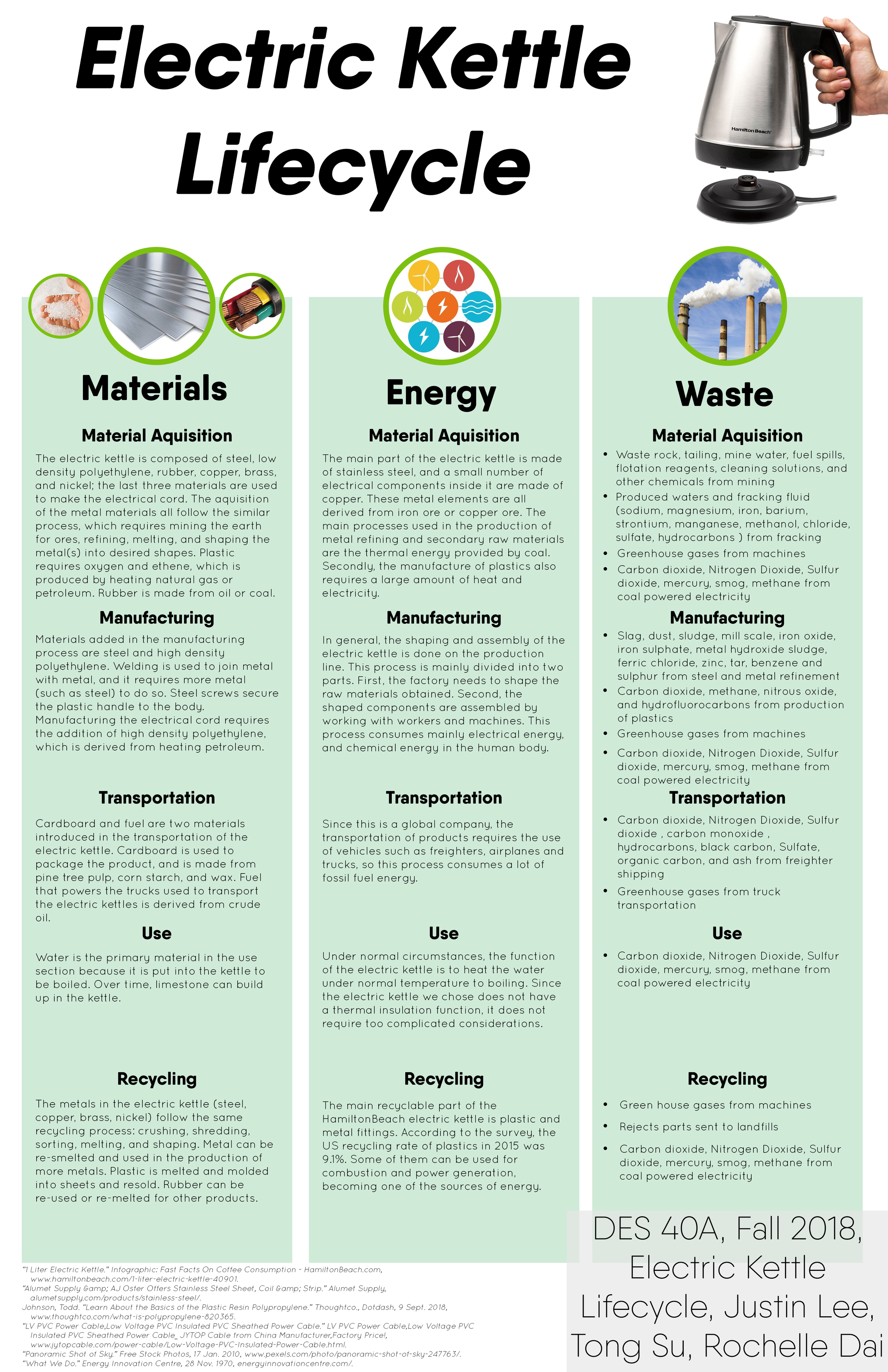What Uses Less Energy Electric Kettle Or Stove
Electric kettles and stoves are common kitchen appliances. Both have their uses, but which one uses less energy?
Saving energy is crucial for both the environment and your wallet. With rising energy costs, knowing which appliance is more efficient can help you make better choices. In this blog post, we will explore the energy consumption of electric kettles and stoves.
We’ll compare their efficiency to help you understand which one is more energy-friendly. This information can guide you in making smarter decisions in your kitchen. Stay tuned as we delve into the details and find out which appliance comes out on top.

Credit: www.designlife-cycle.com
Introduction To Energy Consumption
Energy consumption is a big concern today. It affects your electricity bill and the environment. Using less energy saves money and helps the planet. Energy efficiency is important in every home.
Energy-efficient appliances use less power. This means lower bills and less pollution. Many households aim for energy-saving devices. These appliances are good for your wallet and the Earth. Choosing wisely is crucial.
Two common appliances are the electric kettle and the stove. Both are used to heat water. The electric kettle heats water quickly. It uses less energy for small amounts. The stove takes longer and uses more power. For small tasks, the kettle is better.

Credit: thegogreenpost.com
Electric Kettle Overview
An electric kettle is easy to use. It has a simple design. A base heats the water. The base connects to an electric socket. Water boils quickly. The kettle has an automatic switch-off feature. This saves energy. The kettle is made of plastic, glass, or metal. The handle stays cool. The spout helps pour water safely. Electric kettles are compact and lightweight. They fit in small spaces. They are portable.
An electric kettle uses less power. It heats water faster than a stove. Boiling water with a kettle takes 2-4 minutes. This uses about 1.5 kWh. A stove takes longer. It uses more energy. The kettle’s fast heating saves electricity. This makes it energy-efficient. Many people prefer it. It is a better choice for boiling water.
Stove Overview
Stoves come in different types. Gas stoves use natural gas. Electric stoves use electricity. Induction stoves use magnets. Gas stoves heat up fast. Electric stoves are easy to clean. Induction stoves are very efficient. Each type has its own pros and cons.
Energy use can vary. Gas stoves can be less efficient. Electric stoves use a lot of power. Induction stoves are more efficient. They use less energy. Cooking time also affects energy use. Shorter cooking times save more energy. Always consider the type and usage.
Comparing Energy Efficiency
An electric kettle uses less energy than a stove. It heats water quickly. This speed saves energy. Electric kettles are designed for boiling water. They are more efficient for this task. Stoves take longer to boil water. They heat a larger area. This wastes energy.
Using an electric kettle can save money. It also saves time. Electric kettles have automatic shut-off. This prevents over-boiling. Stoves need more attention. They do not have automatic shut-off. This can waste energy.
Electric kettles are better for small amounts of water. Stoves might be better for cooking. But for boiling water, electric kettles are the best choice. They are faster and more efficient.
Several factors affect energy efficiency. Water amount is a big factor. Heating more water uses more energy. Appliance design also matters. Electric kettles are designed to be efficient. Material of the appliance affects heat transfer. Stainless steel is efficient. Insulation keeps heat inside. Good insulation saves energy.
User habits also play a role. Turning off appliances when not in use saves energy. Using lids on pots helps keep heat in. Choosing the right appliance for the task is key.
Electric kettles are more efficient. They are designed for boiling water quickly. Using them wisely saves energy and money.
Cost Implications
Electric kettles heat water quickly. They use less energy than stoves. Stoves take longer to heat water. So, they use more electricity.
Electric kettles save money over time. They are energy efficient. Lower electricity bills. Stoves might cost more in the long run. More energy usage. Higher bills.
Environmental Impact
Electric kettles often have a smaller carbon footprint. They heat water faster and use less energy. Stoves take longer and might use more electricity or gas. This means more carbon emissions. Choosing an electric kettle can help reduce your carbon footprint.
Using energy-efficient appliances is important. Electric kettles are often more efficient. They use less power and heat only what you need. This helps save energy. It also reduces your environmental impact. Making small changes can lead to big results over time.
Practical Tips For Saving Energy
Only boil the amount of water needed. This saves energy. Fill the kettle just enough for your cup. Use a kettle with an auto shut-off feature. This prevents over-boiling. Clean the kettle regularly. Lime buildup can waste energy. Choose a kettle with a good energy rating. This ensures efficiency.
Use a pot with a lid. This traps heat and cooks faster. Match the pot size to the burner. This avoids wasted heat. Turn off the stove a bit early. The residual heat will finish cooking. Keep stove burners clean. Dirt can cause uneven heating. Use a flat-bottomed pot. It ensures better contact with the burner.

Credit: www.youtube.com
Conclusion
Choosing between an electric kettle and a stove depends on your needs. Electric kettles heat water faster and use less energy overall. They are more efficient for small amounts of water. Stoves can be more versatile but usually consume more energy.
Consider your usage and pick the best option for you. Save energy and reduce your bills by making the right choice. Think about convenience and efficiency in your daily routine.



